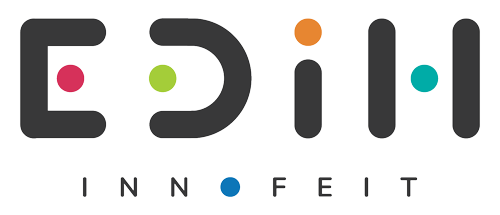Unlock the full potential of your data! This course teaches key techniques for preparing and transforming data for machine learning, using Python to clean, visualize, and optimize datasets for better model accuracy and performance.
Course Overview Table
| Chapter | Details |
| Partner | Faculty of Electrical Engineering and Information Technologies |
| Title | Data preprocessing and preparation for machine learning |
| Service | Course |
| Target Group | Engineers and IT professionals from SMEs, industry, and public organizations, as well as individuals looking to develop skills in data preprocessing and preparation for machine learning. |
| Format | In-Person Training |
| Focused on Key Technologies | Data Science, Artificial Intelligence |
| Status | Ready to offer |
| Stakeholders from SME/PA Side | Organizations that require high-quality data preparation to enhance decision-making and improve the development of ML solutions |
| Requirements for Participation | Basic understanding of data analysis, prior experience with Python is not mandatory |
| Estimated Duration | 4 days, 4 hours per day (16 hours in total) |
Description of the Course
Data preprocessing and preparation are critical steps in the machine learning process. This involves transforming raw, unprocessed data into a structured and consistent format, ensuring its effective use by machine learning algorithms. The goal is to provide accurate, complete, and consistent data, which directly influences the accuracy, stability, and interpretability of models, as well as their predictive capabilities.
This course provides a practical approach to unlocking the full potential of data by focusing on techniques for cleaning, visualizing, transforming, and enriching datasets to support effective machine learning workflows. Through the use of Python and libraries such as Pandas, NumPy, and Matplotlib, participants will learn how to handle real-world data challenges—for example, merging data from multiple sources, dealing with missing values, visualizing feature distributions and correlations, normalizing data for modelling, or generating additional samples for imbalanced datasets—ensuring that the data is accurate, relevant, and ready for analysis.
The course is structured over four days, with each day focusing on a specific segment of the data preparation and preprocessing process:
- Setting up the working environment, introduction to Python and its basics, along with an initial overview of concepts related to data preprocessing and preparation. This day also covers various data sources and methods for integrating them.
- Data Cleaning, Visualization, and Feature Selection, with practical examples and tools for analysis.
- Feature Extraction and Transformation, as well as an introduction to basic signal processing techniques, if applicable, to improve data quality.
- Synthetic Data Generation and Data Augmentation, aimed at enhancing data diversity and improving model performance.
Upon completion of the course, participants will have practical knowledge and skills in data preprocessing and preparation, enabling them to tackle challenges presented by real-world data sets. These competencies will allow them to properly prepare data for application in machine learning algorithms, ultimately resulting in higher model performance, improved predictive accuracy, and greater robustness.
Additional Course Information
| Category | Details |
| Developed skills | Participants will acquire knowledge and skills, including: |
| Skill 1: Setting up the working environment and foundational knowledge of working in Python.
Skill 2: Ability to detect and correct errors, remove irrelevant data, and fill in missing values in dataset Skill 3: Application of data visualization tools to identify trends, patterns, and anomalies within the data. Skill 4: Extraction, identification, and transformation of relevant features that impact model performance. Skill 5: Application of techniques to increase data variety and volume to improve model outcomes. |
|
| Learning Methods Used | Lectures, hands-on exercises, group discussions |
| References/Resources | Jason Brownlee – Data Preparation for Machine Learning (2019)
Wes McKinney – Python for Data Analysis (2017) |
| Overview Slides | Supporting materials will be provided; available via the course platform or upon request |
